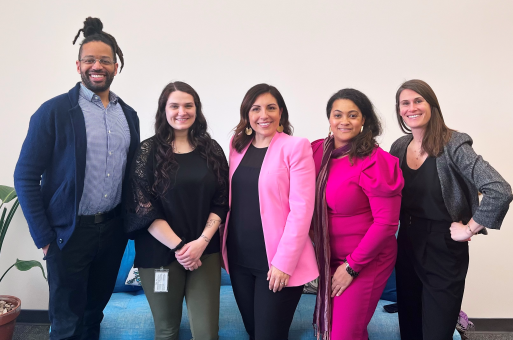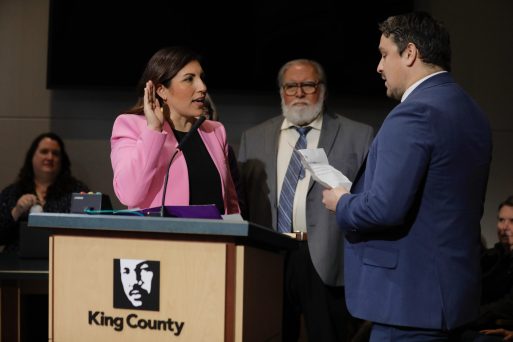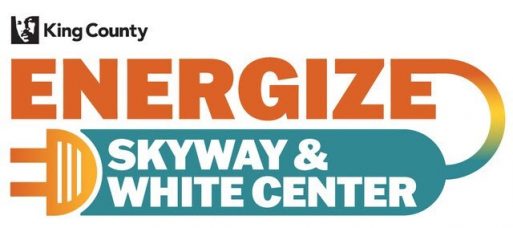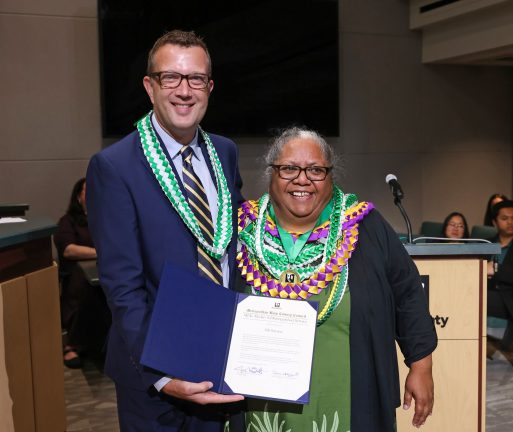By Tracy Record
White Center Now editor
Moments ago, the North Highline Unincorporated Area Council wrapped up its first meeting of 2024, facilitated by NHUAC’s Liz Giba.
KING COUNTY LIBRARY SYSTEM: For the third consecutive meeting, NHUAC had guests from KCLS. This time, trustee Verna Seal, who just joined the KCLS board last year, was first up. (She spent more than a decade and a half on the Tukwila City Council, until 2021.) “I love libraries .. so when this opportunity came up, I saw it as a way to give back,” she said, explaining that the board deals with policy, not operations. She’s one of just two people on the board who are from South King County. She invited questions; Giba asked, “How much money is the board in control of and how is it determined how much goes to each area?” Seal didn’t have specifics but said the system’s budget is $100 million-plus. They get a proposed budget and then review it, ask questions, etc., before eventually voting to approve a final budget (she noted you can see it online). Regional manager Mary Sue Houser added that the board meets at 5 pm on the last Wednesday of each month and anyone can attend online or in person (in Issaquah).
NHUAC’s Pat Price, who’s on the White Center Library Guild, said they’d love to see the board out here. Houser said that once the schedule and locations are finalized – maybe not until the new executive director Heidi Daniel is on board (she starts March 11) – they’ll make sure everyone knows.
Houser talked about programming for kids – including 10:30 am Thursday story times – and a LEGO Block Party at 3 pm February 16. (Check the library website for event listings.) Tax season just started – only 10 returns done so far but Houser said they’ve already found $15,000 in refunds for patrons.
Seal said that while she’s just one board member and can’t directly order changes – like “more hours, everybody wants more hours” – she can advocate, and ensure that issues are discussed. You can contact her and the rest of the board by email (find the address here).
ANNOUNCEMENTS: NHUAC’s Barbara Dobkin announced that King County Parks has volunteer opportunities – including work this Saturday at Dick Thurnau Park and other upcoming events at Glendale Forest and North Shorewood Park, all 9 am-noon work parties. (Find out more about the events, and how to volunteer, by going here.)
KING COUNTY CODE ENFORCEMENT: Tom Campbell, code-enforcement officer with the county Department of Local Services’ Permitting Division, was invited to talk about a couple White Center-area cases. First one, a residential property on 19th SW, where an “inoperable vehicle filled with garbage … had been there for a long time.” The occupants had “bagged the garbage and moved it to their driveway,” he said, but they decided what more they could do via the abatement process. They found the owner, he said, and “she agreed to remove the garbage within one week.” They gave her vouchers so she could take it to the transfer station. As for the inoperable vehicle, the owners plan to have it taken to a scrapyard and will move a vehicle that still works into its place on a gravel pad. “So that should get it cleaned up,” he said, noting that the trash had become an issue for neighbors because it was attracting rats. He explained that they have authority to do “abatement” on this kind of situation and to place a lien on the property to recover costs – but that requires court action, and can “take a fairly lengthy period of time,” so they tried instead to locate the owner first, and were successful via an online search. If she doesn’t keep her commitment, then they can pursue court action, Campbell explained.
He said NHUAC also had asked about the outdoor music from Tim’s Tavern, a frequent topic at meetings last year, with nearby residents hearing it inside their homes. “An outdoor performance center is not allowed in (this kind of) business zone,” he said, so they’ve pursued a code violation there, and also the fact the outdoor seating was constructed without a building permit. “There may also be an occupant load issue,” he said. “We do have an active enforcement case there,” just opened last week, and they’ll be following up. Today they sent a violation letter to Tim’s, he said, and the only way to resolve it is to “stop the activity, stop the use as an outdoor performance center.” If they don’t comply, but appeal it, there’ll be a hearing, and if the violation stands, there would be a compounding daily fine for however long the violation continues. Beyond that, Campbell said, eventually the county could seek “injunctive relief.”
Campbell was also asked about the stripped vehicles and trash at 2831 SW Roxbury, the former Roxbury Auto Parts (which has a sale pending, according to its online listing); he promised to look into it.
With situations like 19th SW, he was asked, what can be done about repeat violations? Campbell said they’re working with the King County Council to review policies that tend to drag these things out. He said people should be aware that code enforcement is funded by the county General Fund and that’s facing a budget crunch, so money woes may affect this kind of work. “We’ve had a position taken away, so we’re down some staff in code enforcement … one of the things we’re going to have to prioritize is the types of violations” that they pursue. Some smaller-level problems may not get immediate action, he warned – they may have to prioritize even more than they do now. They already have a large backlog of ‘very substantive code violations,” he said, that they’re working on.
The 19th SW situation might not have been prioritized if not for everything from the rats to the various people who contacted Permitting about it, Campbell said, including the County Executive’s Office.
Dobkin asked if other downtown White Center businesses also are supposed to not be allowed to have outdoor music; Campbell said he’s not certain about the boundaries of the “community business” district but anyone within it is prohibited from that use. Dobkin said there are rumors that other venues are planning it, with encouragement; Campbell said he’ll look into that too. Dobkin said, “I’m not trying to close a business …. but when it interferes with our life, that’s when it’s a problem.” The King County Sheriff’s Office had been dealing with the Tim’s situation previously, and storefront Det. Glen Brannon said he had lots of background to share with the Permitting Division.
Campbell then was told the Blu Grouse on 17th SW also is a concern, with outdoor music during good weather. Campbell said he’ll check into it, including whether the venue is in the district where this use would be banned.
How can businesses be educated that this is not an allowed use? King County’s Bong Santo Domingo, who’s also with Local Services, was asked, since he’s working with a new alliance involving local businesses. Campbell suggested that assembling and distributing a flyer with what’s not allowed and what is allowed in the business district might be a good idea.
Discussion then turned to concerns that special-event music also was running too loud and too long; longtime residents said they had never had a problem before the past year or so.
KING COUNTY SHERIFF’S OFFICE: Then it was Det. Brannon’s turn. He elaborated on the ex-Roxbury Auto Parts building situation. He said the building was sold a year ago but it fell through (a plumbing company was going to move there); now another sale is pending, as we mentioned above, and he says his understanding that it’s going to be “some kind of car wash facility.” The owner doesn’t have the resources to tow the abandoned car(s) but they have been working to keep squatters out. Regarding the ex-Bartell Drugs building, which is owned by a California woman, it’s up for sale, he said, and it’s been burglarized and vandalized, so they’re trying to get it fenced. The “encampment on 13th” is still an issue, he said, and it’s being reviewed by King County higher-ups, though right now he says it’s only home to two full-time residents, with others coming and going. It might take two months “to get through all the bureaucracy it has to go through,” he cautioned. He talked about other sites he’s tracking, including one behind Little Caesar’s.
Brannon was asked about the much-reported regional enforcement inspections by Liquor Control Board agents and other law enforcers, which drew outcry because several venues were LGBTQ+. White Center’s Lumber Yard Bar was among them. Brannon wasn’t aware of the situation and the usual LCB rep wasn’t present. It was noted that reports also said Roxbury Lanes and Southgate Roller Rink had been visited as well. The regional reports mentioned Seattle Police and LCB involvement; why not KCSO? Brannon said LCB “has its own authority” and doesn’t require other law-enforcement approval or involvement, but he’ll look into it.
He received compliments for the department’s huge drug bust in Burien, and was asked about the most-recent freeway shooting; he said that largely was a State Patrol investigation, but said in general it’s related to gang activity – “young kids shooting each other.”
COUNTY COUNCILMEMBER’S ASSISTANT: Chris Lampkin from new King County Councilmember Teresa Mosqueda‘s office introduced himself and invited everyone to let their office know about issues of concern.
NEXT MEETING: NHUAC usually meets the first Thursday of the month, 7 pm, online – watch nhuac.org for updates.





